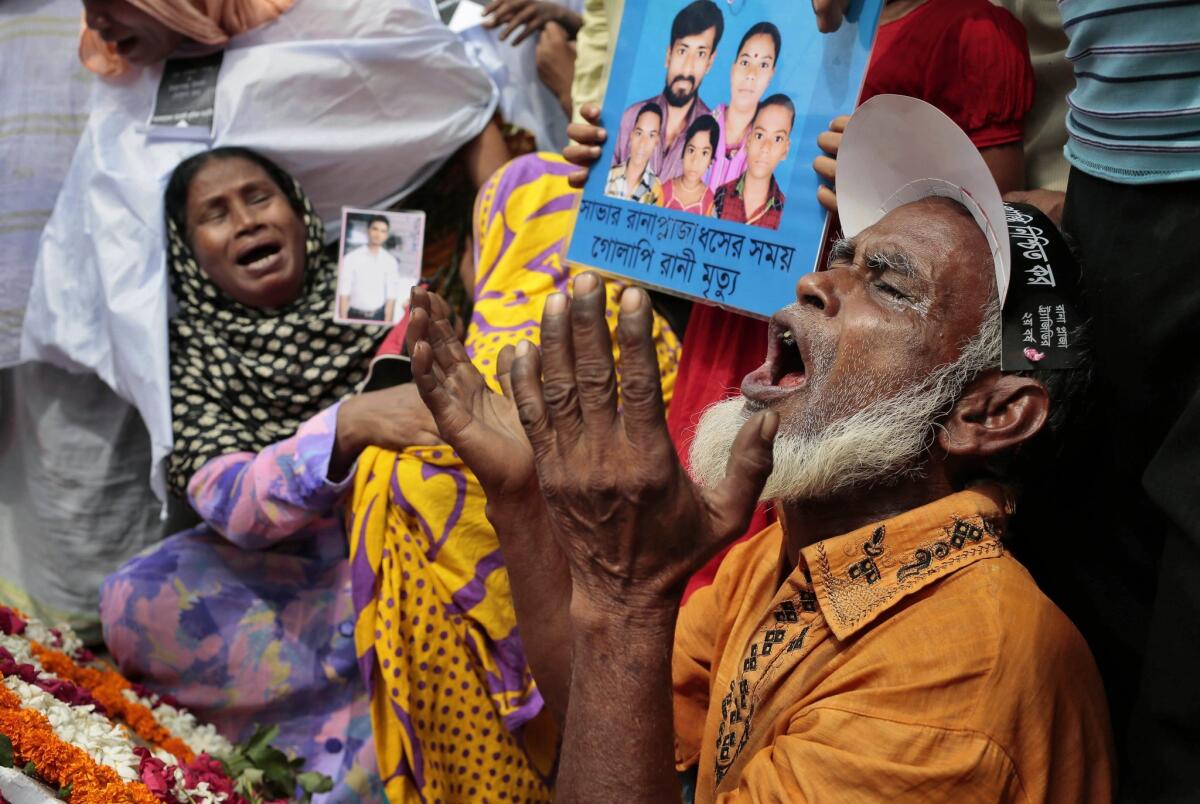Protests mark Bangladesh garment factory collapse 2 years ago

Bangladeshi relatives of victims of the Rana Plaza collapse gather at the spot on the second anniversary of the tragedy in Savar, near Dhaka, Bangladesh, on Friday.
- Share via
Reporting from Dhaka, Bangladesh — About 2,000 survivors, some on crutches, and relatives of victims gathered Friday at the ruins of a garment factory to commemorate the second anniversary of the Rana Plaza building collapse, which took more than 1,100 lives.
From early morning, the mourners, many clutching photos of loved ones, gathered at a makeshift memorial at the site to protest poor factory safety standards and inadequate compensation for survivors of the tragedy, one of the largest workplace disasters in modern history.
Demonstrators formed human chains at rallies that called for further punishment of those responsible for the building collapse, including owner Sohel Rana, who is in prison.
Rana Plaza housed five apparel factories supplying Western brands, a shopping plaza and a bank branch. When cracks developed, police condemned the eight-story building, but some factory owners reportedly ordered workers back to their sewing machines just hours before the collapse. Reports said an illegal ninth story was under construction.
According to Human Rights Watch, many retailers paid into the Rana Plaza compensation fund, but only $21 million of the $30 million needed to compensate survivors has been paid or pledged. Fifteen of the retailers whose labels were found in the wreckage have yet to contribute, the rights organization says.
“I got only $12,900 from the Prime Minister’s fund, but nothing from the trust fund created to help the victims,” said Rehana Akhter, whose leg was amputated after she was trapped under tons of debris.
For some, the anniversary was a chance to protest the failure to find 135 workers who were presumably killed, but whose bodies have never been recovered.
“I want to know where my daughter is buried,” said Jaheda Begum, 55, holding a photo of Saleha, who was 35 when the collapse occurred.
The tragedy triggered international outrage and put pressure on European and U.S. clothing brands that had placed orders at the complex to improve woeful pay and job conditions at Bagladesh’s 4,500 garment factories.
Kader is a special correspondent.
More to Read
Sign up for Essential California
The most important California stories and recommendations in your inbox every morning.
You may occasionally receive promotional content from the Los Angeles Times.













